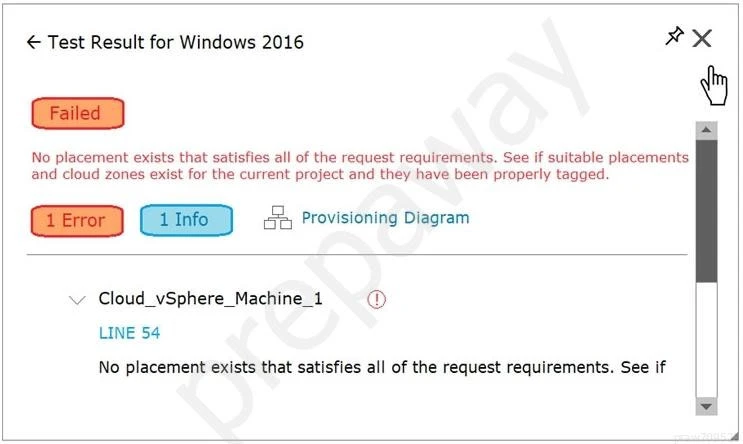Which two tag formats can be defined at the cloud template level in order to ensure that cloud templates are deployed on this particular storage, whenever possible, and fail if not available? (Choose two.)
The tagging strategy states that development environments should be tagged with `dev` and production environments should be tagged `prod`.
Which two actions should the administrator take to ensure the objective is met? (Choose two.)

An administrator is testing a newly created Windows 2016 cloud template in Cloud Assembly. While using the Test option from within the cloud template, the attached error appears.
What is a possible cause for this error message? (Choose the best answer.)